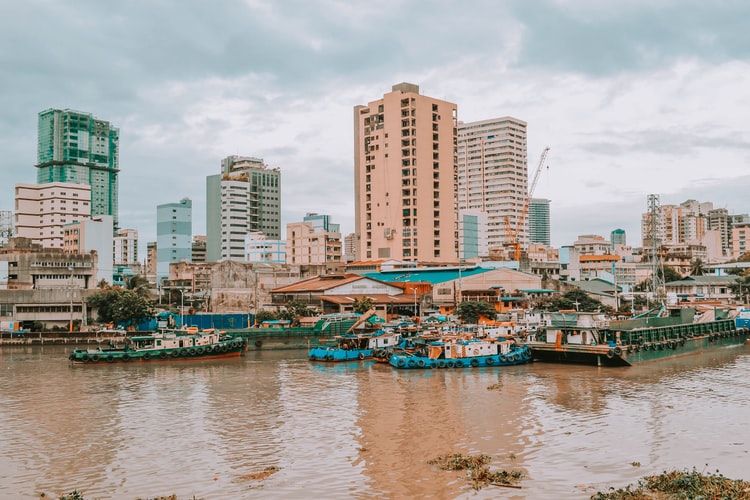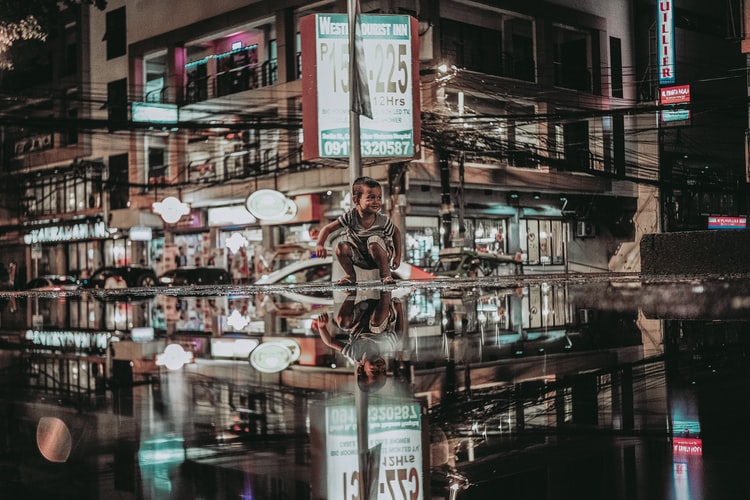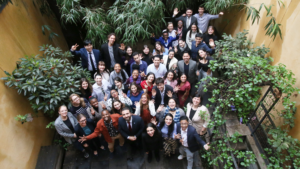If you have ever been to Manila, you will walk away with the impression that it is a city teeming – seemingly even bursting – with life. More than seven billion people in the world, and I am never more aware of this than during my pre-pandemic daily commute: crammed shoulder to shoulder with crowds, pushing and shoving, under the unbearable tropical heat. It is then, in the everyday hustle and bustle of the city, surrounded by people and poverty on all sides, that I understand the need for sustainable development.

Photo by Wander Fleur on Unsplash
Like so many other cities in the developing world, Manila is rife with poverty. When I have watched news reports and documentaries about sustainable development, the images they show – of crowded streets, street children, polluted rivers, shanty houses – are familiar. Why wouldn’t they be? Extreme poverty is a fact of life in Manila, found in every street corner, along railroad tracks, below crumbling bridges.
And nothing is more emblematic of the city’s condition than the slum areas, found in the dozens around the metro. They are a distinctive part of the urban landscape: made of corrugated tin and scraps of plywood, they are home to millions of Manila’s poor. That figure is no exaggeration. In 2012 alone, the World Bank estimated that 1.7 million informal settlers lived in the city.
There are so many and the sight so common that people have become desensitized and disillusioned. Time and again, I have heard – from strangers, journalists, and yes, even friends and relatives – that these slum areas are just eyesores to be eradicated, mere blots upon the glittering city skyline, hindering Manila’s transformation into a world-class city. Unbelievably, even during this pandemic, evictions and relocations of the urban poor have continued unabated. How are they supposed to “stay at home” when they have been left homeless by gentrification?
This is the result of an insidious and pervasive narrative that has grown from the need for sustainable development. “There are too many people and too few resources” is, by now, a familiar refrain. What is worse is that not only individuals are susceptible to this, but entire governments as well. ‘Overpopulation’ – and its accompanying “solution”, ‘population control’ – have become buzzwords. More than that, they have become actual, real-world policies with devastating consequences. Instead of eradicating poverty, the policies that have been put into place – family planning programs and reproductive health laws, for example – aim to eradicate people. Somehow, population growth is only ever considered a problem when it comes to the poor. One wonders how it ever became acceptable to coerce an entire segment of the population not to reproduce.
Overpopulation is a myth. It is not the problem. Poverty is the problem. Here at the World Youth Alliance, we believe that each individual person is filled with boundless creativity and potential. Poverty is what hinders people from reaching that potential, and all the population reduction policies in the world will not help, not when they do not address the root causes of poverty.

Photo by Rainier Ridao on Unsplash
What we need to focus on instead is giving people an education. When I walk by Manila’s slum areas and look at the children playing basketball, or the women doing laundry, or the men sitting around and having a beer, I often wonder what more they have to offer. Surely, there are brilliant minds among them, those who could have been artists and athletes and scientists had they been given half a chance. Instead of seeing the urban poor as an indivisible mass, mere mouths to feed, or burdens to society, we should see them as individuals, each one of them with unique and creative ideas that only they can offer to the world. After all, no matter someone’s socioeconomic status, they are a person with intrinsic dignity. Sustainable development as a project will only work if we never lose sight of that fact.
Now, as I look out at the Manila skyline, at the skyscrapers towering over the slums, a new refrain plays in my head, taken straight from the pages of WYA’s White Paper on Sustainable Development: “People are not the problem. People are the solution.”
Published: May 12, 2021
This piece is written by Karen David, Intern Alumna for the World Youth Alliance Asia Pacific office. She is also a member of the Philippine National Committee.
Interested in the WYAAP Regional Internship? Visit bit.ly/wyaaponlineinternship







